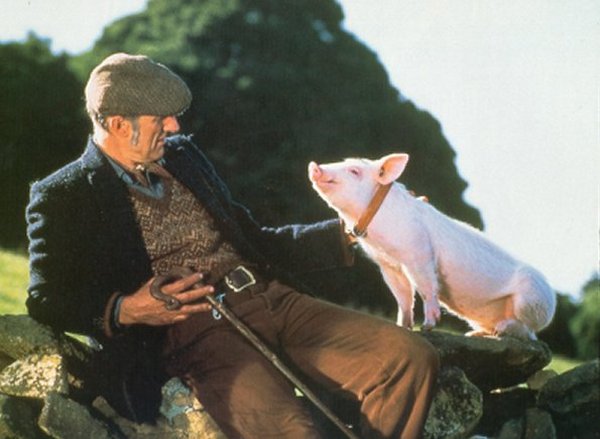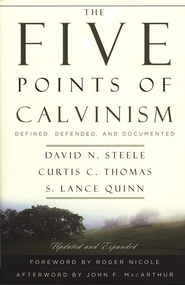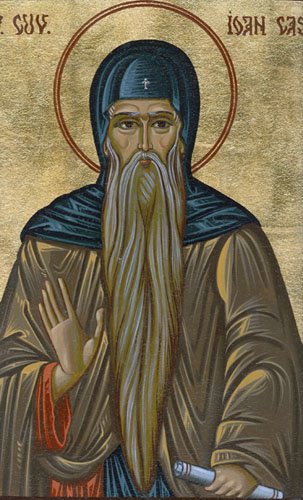Tenet: Perseverance of the Saints
What I Remember it Meaning: You cannot lose your salvation. If you are chosen you will endure the race. Congrats.
What it Actually Means: Since God is sovereign and his will cannot be frustrated by humans or
anything else, those God has called into communion with himself
will continue in faith until the end.
Engaging Perseverance of the Saints
Alright. So here we are in the next-to-last segment of this series, and the final point of TULIP. Perseverance of the saints is interesting. I think it is one of the points of Calvinism that a lot of people struggle with in a more real way than the rest of it. Because really at the end of the day how we are saved (meaning was God resistible, did He predestine us) doesn't bother us deep down as much as these questions: Will I be faithful to the end? Was that person's faith genuine when there was no fruit in their last years?
So, as we did with the other posts, let's look at a couple of viewpoints. Let's start this time with the Eastern Orthodox Church from
The Confession of Dositheus, which was written in 1672 to refute some Calvinist influence coming into their branch of the Church.
And we understand the use of free-will thus, that the Divine and
illuminating grace, and which we call preventing grace, being, as a
light to those in darkness, by the Divine goodness imparted to all, to
those that are willing to obey this-for it is of use only to the
willing, not to the unwilling-and co-operate with it, in what it requireth as necessary to salvation, there is consequently granted particular grace; which, co-operating
with us, and enabling us, and making us perseverant in the love of God,
that is to say, in performing those good things that God would have us
to do, and which His preventing grace admonisheth us that we should do,
justifieth us, and makes us predestinated.
Before I go into another viewpoint let me comment briefly on the Orthodox view. They believe in synergy, which is basically a view that we work with God in the process. For them salvation is much more relational than mechanical or legal like the Western Church. Thus, their views are more about the relational translating into a salvific path of growth. A lot of that comes from their belief that without true freedom there is no true love. (Have I ever told you how much I like the Orthodox Church? Maybe if Orthodoxy met Azusa Street I would feel at home!)
This comes from the Westminster Confession:
They whom God hath accepted in His Beloved, effectually called and
sanctified by his Spirit, can neither totally nor finally fall away from
the state of grace; but shall certainly persevere therein to the end,
and be eternally saved...Nevertheless [believers] may, through the temptations of Satan and of
the world, the prevalency of corruption remaining in them, and the
neglect of the means of their preservation, fall into grievous sins; and
for a time continue therein; whereby they incur God's displeasure, and
grieve his Holy Spirit: come to be deprived of some measure of their
graces and comforts; have their hearts hardened, and their consciences
wounded; hurt and scandalize others, and bring temporal judgments upon
themselves.
And another quick aside: Wesley definitely did not believe in once saved, always saved. So, all of you Methodists, Wesleyans, Church of Gods, Church of God in Christs, Pentecostals and Charismatics...you come by your worry of losing your salvation honestly. Most of us in these denominations trace our lineage back to Wesley and thus did not really account perseverance of the saints as standard. I think we all hoped...but it was not really the norm for most of us growing up in those denominations.
Part of the problem here is that the belief in backsliding is too far engrained me. This can, and probably is, a biblically blind area for myself. I can't point to Scripture here except the same way that I point to Israel resisting God's grace in yesterday's article. There were plenty of kings who started out loving God who later rejected God. There was Judas. So, there are plenty of biblical stories, but I can't really tell you any biblical doctrine here.
I also, and I believe this will give me half a point for this doctrine, believe that the truly saved will endure...albeit some limping in the end, and some maybe even laying on the floor having to be dragged across the finish line. And the reason I say that is because some of those kings that rejected God still came back around to having some measure of faith. So, I go back to the Orthodox Church again. This synergistic process is what helps Christians keep from backsliding. God's relentless pursuit eventually helps us reach toward Him again.
So, I guess, as I said above, I'm about a half-pointer here...maybe a whole point. I have seen men and women reject the faith. We do have a theology of blaspheming the Holy Spirit. So, yes, I think the possibility is there for someone to entirely reject God...but I think the drawing of the Holy Spirit is such that even in our dying breaths if we would be breathe the name of God we are restored. And though it is possible to resist God, I think that those who have tasted the sweetness of God long for another taste. I think once true salvation has taken over your heart, soul, mind and strength, ultimately you long to maintain what you have...because nothing else will satisfy.
Therefore,
while we all labour naturally under the same disease, those only
recover health to whom the Lord is pleased to put forth his healing
hand. The others whom, in just judgement, he passes over, pine and rot
away till they are consumed. And this is the only reason why some
persevere to the end, and others, after beginning their course, fall
away. Perseverance is the gift of God, which he does not lavish
promiscuously on all, but imparts to whom he pleases. If it is asked how
the difference arises – why some steadily persevere, and others prove
deficient in steadfastness, we can give no other reason than that the
Lord, by his mighty power, strengthens and sustains the former, so that
they perish not, while he does not furnish the same assistance to the
latter, but leaves them to be monuments of instability - See more at:
http://calvinquotes.com/tag/perseverance-of-the-saints/#sthash.u6Fyc3Za.dpuf
herefore,
while we all labour naturally under the same disease, those only
recover health to whom the Lord is pleased to put forth his healing
hand. The others whom, in just judgement, he passes over, pine and rot
away till they are consumed. And this is the only reason why some
persevere to the end, and others, after beginning their course, fall
away. Perseverance is the gift of God, which he does not lavish
promiscuously on all, but imparts to whom he pleases. If it is asked how
the difference arises – why some steadily persevere, and others prove
deficient in steadfastness, we can give no other reason than that the
Lord, by his mighty power, strengthens and sustains the former, so that
they perish not, while he does not furnish the same assistance to the
latter, but leaves them to be monuments of instability. - See more at:
http://calvinquotes.com/tag/perseverance-of-the-saints/#sthash.u6Fyc3Za.dpuf
herefore,
while we all labour naturally under the same disease, those only
recover health to whom the Lord is pleased to put forth his healing
hand. The others whom, in just judgement, he passes over, pine and rot
away till they are consumed. And this is the only reason why some
persevere to the end, and others, after beginning their course, fall
away. Perseverance is the gift of God, which he does not lavish
promiscuously on all, but imparts to whom he pleases. If it is asked how
the difference arises – why some steadily persevere, and others prove
deficient in steadfastness, we can give no other reason than that the
Lord, by his mighty power, strengthens and sustains the former, so that
they perish not, while he does not furnish the same assistance to the
latter, but leaves them to be monuments of instability. - See more at:
http://calvinquotes.com/tag/perseverance-of-the-saints/#sthash.u6Fyc3Za.dpuf
herefore,
while we all labour naturally under the same disease, those only
recover health to whom the Lord is pleased to put forth his healing
hand. The others whom, in just judgement, he passes over, pine and rot
away till they are consumed. And this is the only reason why some
persevere to the end, and others, after beginning their course, fall
away. Perseverance is the gift of God, which he does not lavish
promiscuously on all, but imparts to whom he pleases. If it is asked how
the difference arises – why some steadily persevere, and others prove
deficient in steadfastness, we can give no other reason than that the
Lord, by his mighty power, strengthens and sustains the former, so that
they perish not, while he does not furnish the same assistance to the
latter, but leaves them to be monuments of instability. - See more at:
http://calvinquotes.com/tag/perseverance-of-the-saints/#sthash.u6Fyc3Za.dpuf
herefore,
while we all labour naturally under the same disease, those only
recover health to whom the Lord is pleased to put forth his healing
hand. The others whom, in just judgement, he passes over, pine and rot
away till they are consumed. And this is the only reason why some
persevere to the end, and others, after beginning their course, fall
away. Perseverance is the gift of God, which he does not lavish
promiscuously on all, but imparts to whom he pleases. If it is asked how
the difference arises – why some steadily persevere, and others prove
deficient in steadfastness, we can give no other reason than that the
Lord, by his mighty power, strengthens and sustains the former, so that
they perish not, while he does not furnish the same assistance to the
latter, but leaves them to be monuments of instability. - See more at:
http://calvinquotes.com/tag/perseverance-of-the-saints/#sthash.u6Fyc3Za.dpuf

 The key element to Babe for me was always the relationship between Farmer Hoggett and Babe. In a lot of ways this film was the quintessential God-follower of God movie for me. It followed a lot of the paradigms I understood about God. God was a bit stoic. God rarely spoke. But God was inherently good. And God also spoke true identity. Babe was sheep pig even if there never had been a sheep big before. God spoke it, Babe believed it...lives were changed.
The key element to Babe for me was always the relationship between Farmer Hoggett and Babe. In a lot of ways this film was the quintessential God-follower of God movie for me. It followed a lot of the paradigms I understood about God. God was a bit stoic. God rarely spoke. But God was inherently good. And God also spoke true identity. Babe was sheep pig even if there never had been a sheep big before. God spoke it, Babe believed it...lives were changed.






















